Streamlining Operations with Expert Calibration Management Services
Calibration management services play a crucial role in streamlining operations and ensuring the accuracy and reliability of equipment and instruments. By partnering with expert calibration management services, organizations can optimize their processes, minimize downtime, and maintain compliance with industry standards. These services encompass a range of activities, from scheduling and performing calibrations to managing calibration records and generating reports. In this article, we will explore the benefits and importance of utilizing professional calibration management services for efficient and effective operations.
Streamlining operations with expert calibration management services involves implementing a comprehensive system for managing and maintaining equipment calibration. This can include services such as scheduling routine calibrations, tracking equipment status, managing calibration records, and ensuring compliance with industry regulations. By outsourcing calibration management to a team of experts, companies can reduce the risk of equipment downtime, improve accuracy and reliability, and streamline their overall operational efficiency. These services can also help organizations reduce costs associated with equipment maintenance and improve overall asset management.
The Importance of Professional Calibration Management Services
calibration services perth
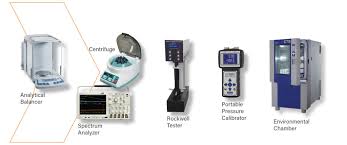
Professional calibration management services are essential for ensuring the accuracy and reliability of industrial equipment and instruments. These services involve the regular monitoring, adjustment, and documentation of measurement and testing equipment to maintain compliance with industry standards and regulations. By outsourcing calibration management to a professional service provider, organizations can minimize the risk of errors, reduce downtime, and ensure the quality of their products and services. Additionally, professional calibration management services can help organizations streamline their processes, improve efficiency, and demonstrate compliance to customers and regulatory authorities.Overall, investing in professional calibration management services can ultimately result in cost savings, improved productivity, and enhanced reputation for businesses across various industries.
Maximizing Efficiency with Calibration Management Services
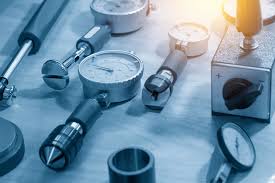
Calibration management services can help maximize efficiency by ensuring that all instruments and equipment are properly calibrated and maintained according to industry standards. This can help avoid costly downtime and production delays, as well as improve the accuracy and reliability of measurements and testing. By outsourcing calibration management to a professional service provider, businesses can focus on their core operations and leave the technical aspects of equipment maintenance to experts. Additionally, regular calibration and maintenance of equipment can help prolong their lifespan, reducing the need for frequent repairs or replacements. Overall, calibration management services can contribute to improved productivity, cost savings, and compliance with industry regulations.
Choosing the Right Calibration Management Service Provider
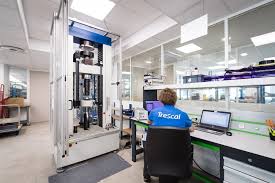
Choosing the right calibration management service provider is crucial for the accuracy and reliability of your measurement instruments. When selecting a provider, it's important to consider factors such as their accreditation, expertise, experience, quality of service, and the range of instruments they can calibrate. Look for a provider that is accredited to international standards such as ISO/IEC 17025, which ensures that their calibration processes meet the highest quality and technical competence. Additionally, consider their experience in calibrating specific types of instruments relevant to your industry, and inquire about their quality assurance processes. A comprehensive calibration management service provider should offer a wide range of calibration services for various instruments, including electrical, mechanical, dimensional, and more. Taking these factors into account will help you choose a reliable and competent calibration management service provider.
Understanding the Benefits of Calibration Management Services
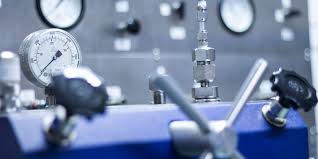
Calibration management services help organizations ensure that their measuring and testing equipment is operating accurately and reliably. These services typically include regular inspections, adjustments, and documentation to meet industry regulations and quality standards. By ensuring the accuracy of equipment, organizations can reduce the risk of producing faulty products and improve their overall quality control processes. Additionally, calibration management services can help organizations optimize their equipment maintenance schedules and identify potential issues before they become major problems. This can ultimately lead to cost savings and improved operational efficiency.
Streamlining Processes with Effective Calibration Management Services
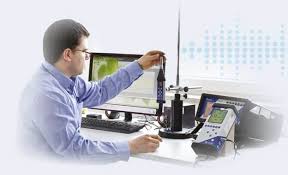
Streamlining processes with effective calibration management services involves utilizing advanced software and tools to schedule, track, and manage equipment calibration activities. This helps organizations ensure that all instruments and devices are maintained within their specified tolerances, reducing the risk of product defects or non-compliance with industry regulations. Additionally, effective calibration management services can help save time and reduce costs by automating calibration reminders, managing documentation, and providing real-time visibility into equipment status. By implementing these services, businesses can improve their overall operational efficiency and maintain consistent product quality.
Evaluating the Cost-Effectiveness of Calibration Management Services
Evaluating the cost-effectiveness of calibration management services involves assessing the value of these services in relation to their cost. This can include analyzing factors such as the accuracy and reliability of calibration, the impact on production downtime, the potential cost savings from preventing equipment failures, and the overall efficiency of the calibration process. It may also involve comparing the cost of outsourcing calibration management services to the potential cost of performing these services in-house. By conducting a thorough evaluation, organizations can make informed decisions about the most cost-effective approach to calibration management.
The Role of Technology in Modern Calibration Management Services
Technology plays a critical role in modern calibration management services by providing efficient and accurate solutions for monitoring, documenting, and analyzing calibration data. Advanced software and systems enable automated calibration scheduling, tracking, and alert notifications, ensuring that equipment is regularly maintained and calibrated to meet industry standards and regulations. Additionally, technology facilitates real-time access to calibration data, allowing for remote monitoring and analysis, as well as for generating comprehensive reports for compliance purposes. Cloud-based solutions also enable seamless collaboration and data sharing among various stakeholders, improving communication and productivity in the calibration process. Furthermore, the integration of technologies such as IoT (Internet of Things) and data analytics allows for predictive maintenance and optimization of calibration processes, ultimately leading to cost savings and enhanced equipment performance. Overall, the role of technology in modern calibration management services is instrumental in ensuring precision, compliance, and efficiency in maintaining equipment and ensuring quality in various industries.
Improving Compliance through Calibration Management Services
Improving compliance through calibration management services involves ensuring that equipment and instruments are accurately calibrated and maintained according to industry standards and regulations. This can include regular calibration scheduling, documentation of calibration activities, and adherence to regulatory requirements. By implementing a robust calibration management program, organizations can minimize the risk of non-compliance, improve accuracy in measurements, and ultimately enhance the quality and reliability of their products and services. Compliance with calibration standards can also lead to cost savings by reducing the likelihood of errors and rework. Overall, investing in calibration management services can help organizations ensure regulatory compliance while enhancing operational efficiency and product quality.
Tips for Implementing Successful Calibration Management Services
Successful calibration management services require careful planning and execution. Firstly, it is important to establish a comprehensive inventory of all equipment that requires calibration. This should include details such as make, model, serial number, and calibration due date. Next, it's essential to have a robust scheduling system in place to ensure that all calibrations are conducted on time. This can be achieved through the use of software or spreadsheets to track when each piece of equipment is due for calibration. Additionally, it's important to work with qualified and accredited calibration providers to ensure that all calibrations are performed to the required standards. Regularly reviewing the performance of calibration providers is also crucial to ensure quality and reliability. Furthermore, maintaining accurate records of all calibrations is essential for compliance as well as for providing a clear audit trail. This can involve the use of a calibration management system or database to store and organize calibration certificates and records. Finally, regular review and improvement of the calibration management process is vital for continuous improvement. This can involve gathering feedback from users, addressing any issues that arise, and updating procedures as necessary to ensure the highest level of accuracy and efficiency in calibration management.
Enhancing Quality Control with Calibration Management Services
flow meter calibration services
Enhancing quality control with calibration management services involves implementing a system for ensuring that all measuring and testing equipment used in your manufacturing or quality control processes is regularly calibrated and maintained to ensure accuracy and reliability. This includes managing schedules for calibration, recording and tracking calibration data, and ensuring that equipment meets regulatory and industry standards. By utilizing calibration management services, businesses can improve the accuracy and consistency of their testing and measurements, ultimately leading to higher-quality products and reduced risk of errors or non-compliance. These services can also help to streamline the calibration process, saving time and resources while ensuring that equipment is properly maintained and functioning at its best.